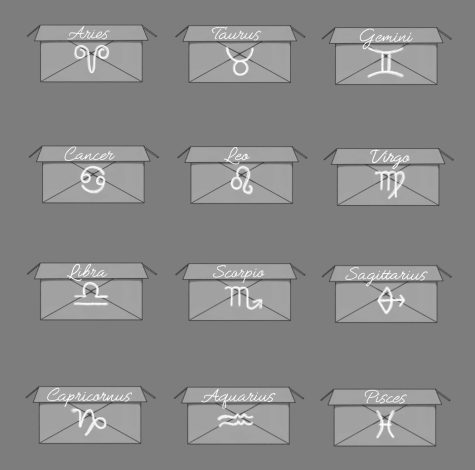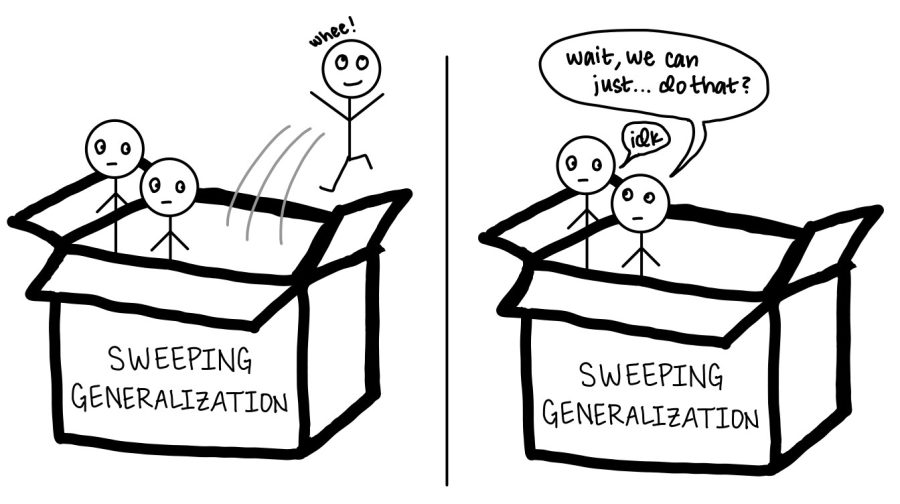The appeal of Typology and why no one fits into a proverbial “box”
May 26, 2023
Does anyone else remember spending hours taking BuzzFeed quizzes in middle school? Dying to find out what color your aura is, what pair of shoes represents your personality, or if you were a nerd, what Harry Potter house you belonged to? Have you seen the TikTok trends about whether you’re an “okokokok” or “lalalala” type of person, or if you’re a soldier, poet, or king? If you were in VANTAGE, did you take a color test to determine whether you were a red, green, yellow, or blue? Do you regularly check your horoscope to see what the stars say about your future?

Within 10-seconds of browsing BuzzFeed’s quiz page, I stumbled upon the highly scientific, dramatically important test to determine whether you’re a lobster, grass, pizza, or rock. Yes, actually. Who on earth would waste their precious time taking this? (I’m a rock.)
But seriously, why do personality tests have people in such a chokehold? Sure, there’s definitely some entertainment value in them, but it begs the bigger question: Why do we, as humans, feel the need to place ourselves into fixed boxes?
Does it stem from our innate need to belong to a larger group of people? In an anthropological article titled “Shared Intentionality”, authors Tomasello and Carpenter argued that “humans have a species-unique motivation to share others goals, intentions and perceptions of the world.”
This pursuit of a shared purpose could explain why personality and behavior tests are so widely used and referenced. The introspection that occurs during and after taking these assessments often leads to people being more mindful of their thought processes and abstract values. This mindfulness could improve peoples’ productivity and self-awareness.
However, while some personality tests have more scientific grounding than others, none of them are capable of representing people as a whole. Ultimately, these quizzes aim to boil people down into discrete categories, leaving very little room for overlap or situational variability in people’s responses. For example, though I was categorized as “Feeling” on the Myers-Briggs personality test, I’m obviously not incapable of critical thinking, nor does it mean I’m overly emotional.
The lack of nuance in these tests’ diagnosis is dangerous, as it could lead to people seeing limits to their capabilities where there are none, solely due to the fixed archetype they believe they fall under.
The outcome of these tests can also lead to…weird social consequences. Often the report of the result includes a section about which personality types someone is incompatible with. For example, Enneagram Types 1 and 7 supposedly won’t get along since their traits don’t align. That in and of itself makes sense — of course some people are more compatible with each other than others — but the issue arises when people preemptively rule out social relationships with those they assume will be “incompatible”.
The stereotyping and potential exclusion of people due to caricatures derived from what is often pure fiction is, simply, super dumb. (Admittedly, it could just be my trauma speaking from when I tried to sit down at a lunch table at a 6th grade summer camp and was rebuffed since I was a Pisces. But I digress.)
To be fair, understanding the inner workings of yourself and others can definitely improve a group dynamic and stimulate more effective collaboration. Taking personality assessments as a group in a social or work setting incites discussion about our values, strengths, weaknesses, and habits. It’s simple to see how sharing results from these quizzes can help us understand people’s most basic traits, taking one step closer to truly understanding each other.
In my opinion, personality tests are merely a tool to help rationalize tendencies and recognize behavioral patterns but in no way should limit expectations of your potential, nor render you incapable of growth and dimensionality. Personality tests should give insight into — not define — your social identity. Sometimes, all you need is a smidge of critical thinking to realize that maaaaybe your life isn’t falling apart oooonly because you’re a Sagittarius…






























